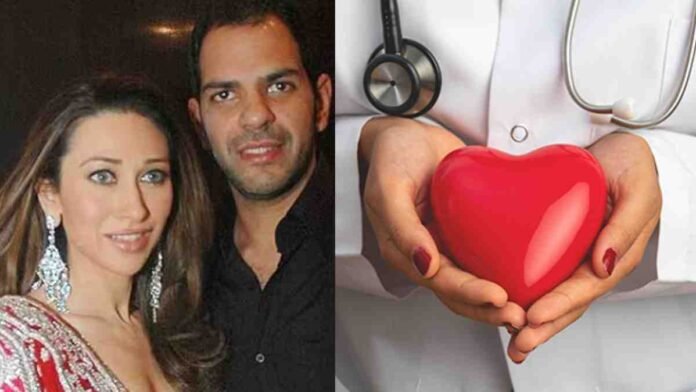The unexpected passing of industrialist Sunjay Kapur, former spouse of actress Karisma Kapoor, has come as a shock to social media and business circles alike. Reports suggest the 53-year-old suffered a catastrophic heart attack in London. In the meantime, while his family and close friends are in mourning, there is renewed awareness on men’s heart health, particularly those over the age of 40.
It is well established in the medical community that cardiovascular disease continues to be one of the most prominent health challenges across the world. Many people still do not pay enough attention to the symptoms that can provide valuable hints for early detection.
Insights From Specialists
Dr. Ramesh Shetty, a senior cardiologist, points out, “Most people brush off early warning signals as stress or digestion issues. They tend to gradually worsen, and conditions related to the heart often go unnoticed.”
Signs and Symptoms of Heart Disease
Here are some critical, yet commonly ignored symptoms indicative of more serious heart complications:
- Chest pain or discomfort – Condition characterized by burning, tightness, or pressure.
- Shortness of breath – Difficulty breathing, particularly while at rest.
- Unusual fatigue – Increased tiredness with minimal activity.
- Dizziness or light headed – Low blood flow to the brain.
- Subdivision pain – Pain in the jaw, neck, or back which is frequently ignored but important.
- Cold sweats and nausea – not only associated with food poisoning or the flu.
Who is uniquely vulnerable?
Men older than 45 years and women older than 55 years face a higher risk. Additional risk factors include family history, chronic hypertension, diabetes, smoking, obesity, and a sedentary lifestyle.
Ability to prevent is possible
The encouraging news? Heart attacks remain largely preventable. Attaining regular health screenings, balanced diets, regular physical activity, abstinence from tobacco, and stress management are all imperative.
Dr. Shetty adds, “If you wait, you will have symptoms. It’s better to be proactive. Anyone can fall victim. If someone like Sunjay Kapur, who had access to top-tier healthcare, can fall victim, so can anyone.”
Sunjay Kapur’s sudden death serves as more than just personal grief for his family. It stands as a collective warning—always listen to your body, pay attention to your cardiovascular health, and never dismiss the warnings.



